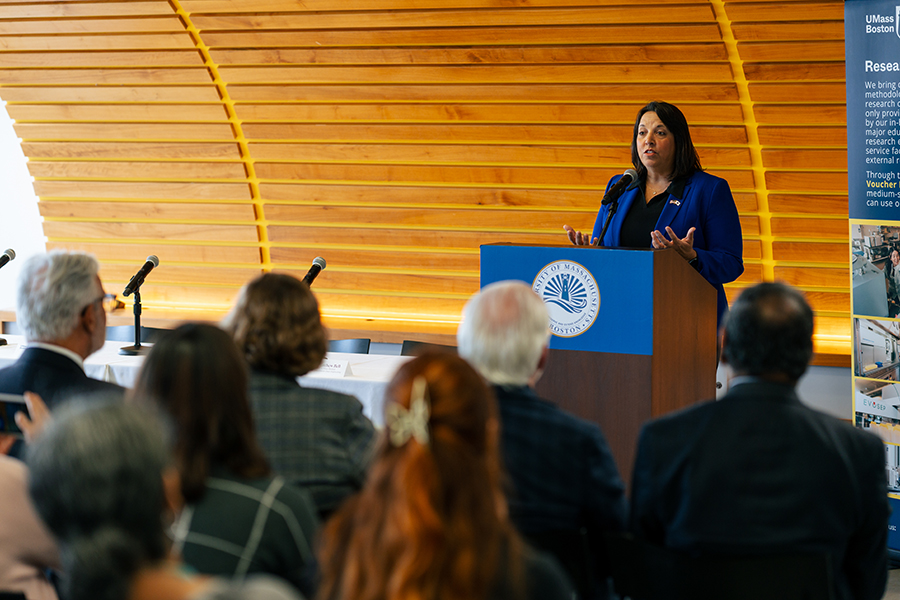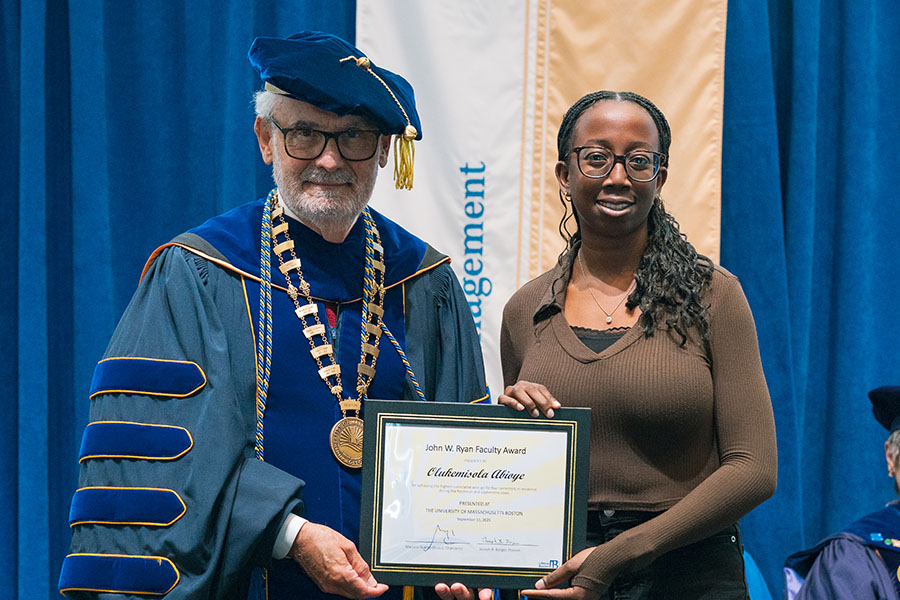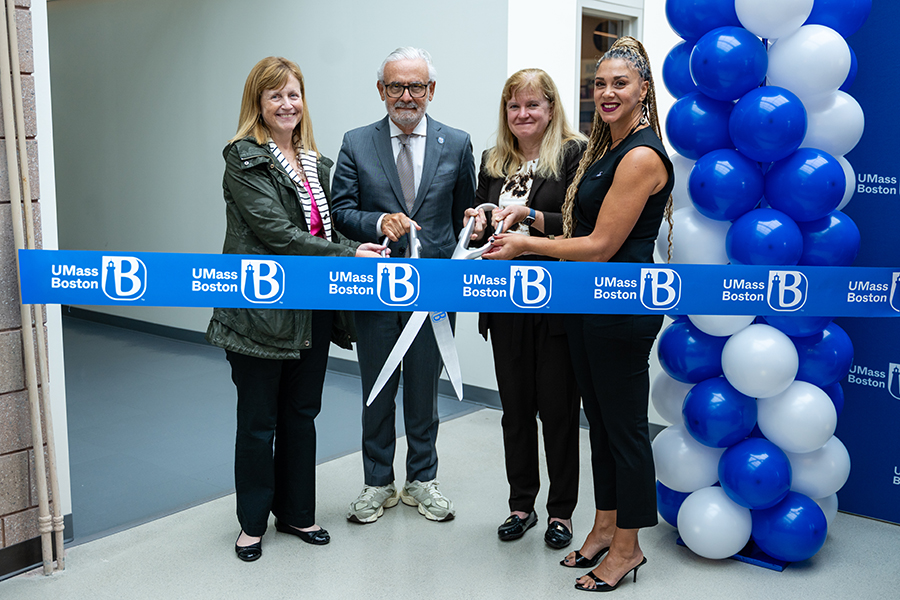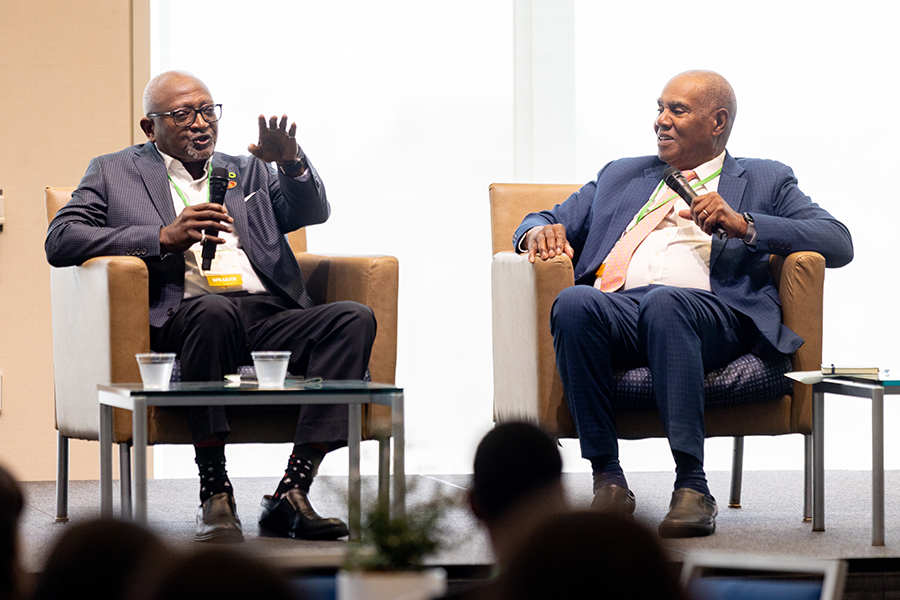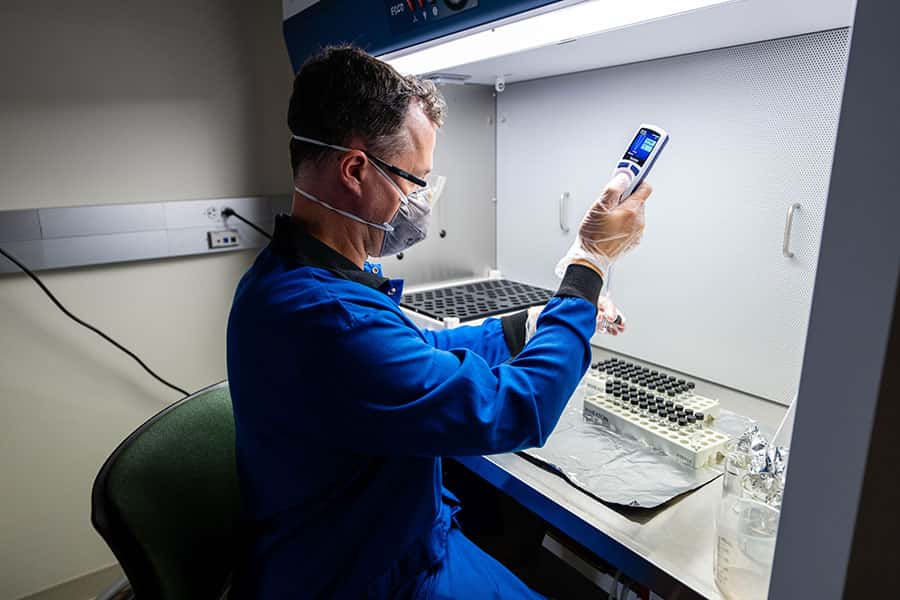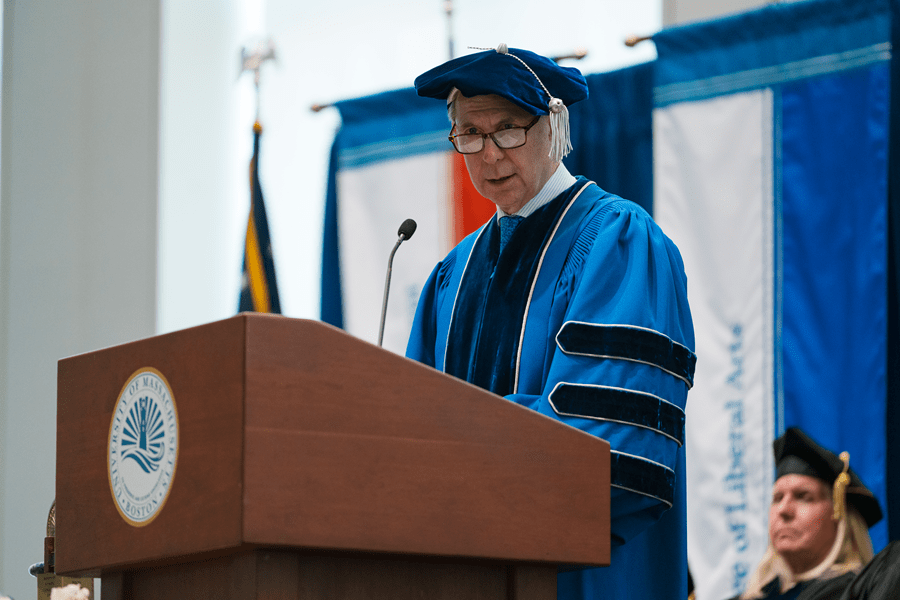UMass Boston Is Named Top Tier Research University
The Carnegie Classification of Institutions of Higher Education has recognized UMass Boston with its top designation for research. The new 2025 Carnegie Classification designation names UMass Boston an R1 research institution with “very high research activity –very high spending and doctorate production.”
“In higher education, we frequently discuss research that expands the ‘frontiers’ of knowledge, drives economic and social progress, and spurs innovation,” said Chancellor Marcelo Suárez-Orozco. “This R1 designation places UMass Boston on a clear path to deliver high-impact research for the benefit of the City of Boston, the Commonwealth, and the world. Furthermore, this recognition affirms the university’s strong commitment to enhancing core facilities and forging cross-sector partnerships that amplify the research produced by our extraordinary faculty, staff, and students.”
UMass Boston has long maintained a commitment to research that generates new knowledge that both explores critical areas of inquiry and addresses complex challenges of our times, from climate resilience to health equity to education for all. For many years, the university has been designated an R2 research institution, which signifies “high research activity—high spending and doctorate production.” The new R1 classification is a major reputational advancement for UMass Boston that will aid in attracting new research funds and recruiting accomplished faculty researchers and graduate students.
“We are grateful for the recognition that a Research 1 designation from the Carnegie Foundation brings to UMass Boston,” said Provost Joseph Berger. “The elevation of UMass Boston into the highest tier of research universities is an acknowledgment of the remarkable contributions of our faculty, staff, and students. Building upon this strong foundation of impactful research and doctoral education, we look forward to continued success in our mission-driven work as a leading research university.”
In fiscal year 2024, UMass Boston reported $81.1 million in annual research funding, a 31% increase over the previous four years. Research expenditures grew to $71.34 million, a 33.7% increase over the previous four years. Doctoral degrees conferred have reached record levels over the past four years, reaching 110 in 2024, nearly double the number a decade ago.
The R1 Carnegie Classification for 2025 uses a threshold of $50 million in total research and development spending and 70 doctoral research degrees awarded. The research spending is calculated from data from the National Science Foundation Higher Education Research and Development Survey, and the doctoral research degree data is taken from the National Center for Education Statistics IPEDS data.
Latest University News
- UMass Boston Secures $3.8M for Collaborative Expanding Quantum Hardware Development, CommercializationMassTech Builds on its Support of UMass Boston, Western New England University-led Initiative
- Olukemisola “Kemi” Abioye has been recognized as the 2025 Ryan Award winner after achieving the highest cumulative GPA over four semestersAfter years of hard work and learning to balance extracurriculars with jobs, internships, and school, Kemi Abioye received the 2025 Ryan Award at UMass Boston.
- UMass Boston Unveils Major Upgrades to Clark Athletic CenterA New Era of Beacon Athletics Begins with Modernized Facilities and Enhanced Fan Experience
- UMass Boston Hosts Groundbreaking National Environmental Justice Conference“Bridging Communities with Hope” brings together renowned EJ leaders and grassroots activists from across the U.S.
- Nitrogen In Fossils Indicates Climate Resilience in Pacific Ocean UpwellingBy studying the shells of ancient plankton, Jesse Farmer and his colleagues have explored the state of the tropical Pacific during the warm Pliocene Epoch. Their study, published this week in the journal Science, shows that, counter to prior claims of permanent El Niño under a warmer climate, the nutrient upwelling that sustains fisheries in modern times was also strong in the Pliocene when the climate was warmer.
- In Convocation Keynote, University of Massachusetts General Counsel David Lowy Calls for Civil DiscourseFollowing a prestigious judicial career, the Honorable David Lowy (retired) now serves as the General Counsel for the University of Massachusetts. During the 2025 UMass Boston convocation ceremony, Lowy encouraged the incoming class to be open to hearing new ideas, because they will be the ones to reinvent civil debate.








